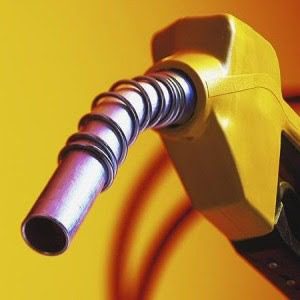Economic Issues
Falling oil price: Is agriculture the panacea? -By Poyo Oduofomayo

Of course, it’s a bitter truth that the recent tumbling of the crude oil price has really attracted some mixed feelings in our dear nation Nigeria. A wave of panic, agitation and pandemonium has engulfed the mind of many Nigerians particularly the intelligentsia and even the whole mighty government itself. Nigerians have really found themselves in a state of puzzle and worry due to the drop of the global oil prices which directly throw its massive effect to our economy. And the sole reason of the panic is due to the countries overwhelming dependence of oil and gas exports for over 90% of its foreign exchange earnings.
Nigeria has a crown of remaining as the largest economy in Africa and the continent’s largest exporter of crude. This blessings have made Nigeria to be ranked 26th in the world in term of GDP nominal (30th in 2013 before rebasing, 40th in 2015, 52nd in 2000). It has been prevalent for a long time on media that the oil prices have been in a free fall since June reaching the figure of $104 per barrel on August 1, 2014, the price has steadily and constantly diminished to as low as $ 48 per barrel lately. Even though the government is tirelessly trying to absorb the shock from continued fall of crude oil prices that may negatively affect the entire national economy or even destroy the complete economy at large. As said by the president organization of petroleum resources Mrs. Diezani Alison Madueke that Nigeria needed to develop another strategy to stay competitive in the dwindling crude oil market. On the other hand we heard that the government is set to commence comprehensive implementation of import substitution program to enhance local production of goods and services.
Their response is so far fruitful and quite appealing to all Nigerians. At least they really showed a sign of patriotism, competence and concern for the national economy and the people of the dear nation. We do believe that tumbling price will negatively affect us in so many ways like the problem of devaluation of the country’s currency, rising of national debt, empty national reserves, and many sectorial crises. We do believe that the government is trying to stabilize the economy by trying to identify and depose all such catastrophes. But the question that lingers much in our mind is how the government is going to rescue this deteriorating economy from massive collapse. Which strategies and methods are they going to apply, how are they going to use them and where? We do join our hands together to pray for them to avert from such blunder they have made initially in clinging to only one sector and mismanaging and abandoning all the remaining sectors like agriculture, mining and industry.
Of course for a nation that its star gleams all the night, this issue is quite a derision in the eyes of other nations particularly those that envy its progress and potentiality. Yes, it’s derision, a fiasco as well. There is hope that the price of the crude oil could rise again to its former price or to even skyrocket to a price high above the initial $104 per barrel. A research has shown that there is still demand for Nigerian crude oil from Asian economies like China. Even though the quantity of the oil Nigeria produces is just 2.7% of the world supply compared to Saudi Arabia that is producing almost 12.9%, Russia and USA also produce 12.7% and 8.6% respectively. But this is not even the major challenge. Let’s assume China and other Asian countries need Nigerian crude oil, do we consider the possibility of their utilizing technology to discover or create another cheaper and alternative source of energy in future? Such a development could make China to jettison our sweet crude oil “ Bonny light”.
That’s not even the biggest worry. It’s like Nigerians have completely forgotten about the likelihood and the possible future of the whole oil itself. Nigerians have forgotten that this rock oil which they cling on to, neglecting the other sectors is not renewable. We even heard the current president of Nigeria during one opening ceremony of Dangote cement factory saying that the Nigerian crude oil may be exhausted possibly in next coming thirty to thirty five years. So if a slide of the global oil prices will quake the entire economy of the nation, what if one day we realized that the whole oil is exhausted?
So in my own opinion, this dwindling of crude oil prices makes it necessary for Nigerians to adopt all the necessary measures to urgently diversify its revenue base. But to unlock the potentials of other sectors, particularly Agriculture that has over 84 million of hectares of arable land. We can recall that Nigeria is once a large net exporter of food but due to our negligence and mismanagement, it is now a net exporter of food products. We have so many potentials and fortunes in Agriculture – a vast fertile land, enough human labor, capital, optimal weather for sufficient plant growth and efficient rainfall.
Inspite of all these unique blessings from Agriculture, the sector has suffered from so many years of mismanagement, inconsistent and poorly conceived governmental policies and lack of machineries and good farm power and inputs. Though the sector still tried and managed to account for over 26.8% of GDP and two third of the national employment, the sector is massively deteriorating. Today Nigeria is no longer the major exporter of cocoa, groundnut, soya bean, rubber and palm oil.




















